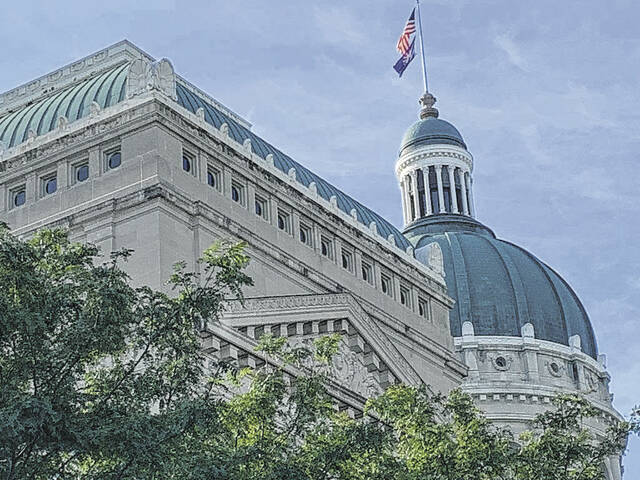City officials are breathing a sigh of relief after a concerning provision in a tax bill making its way through the statehouse was eliminated this week.
The Indiana Senate’s Tax and Fiscal Policy Committee amended House Bill 1002 Tuesday, eliminating a business personal property tax holiday that could have cost Franklin and Greenwood millions of dollars.
The proposal was to give business owners a 10-year tax holiday beginning in 2024, from the 30% maximum depreciation floor for all new equipment that qualifies under the Business Personal Property Tax. These are typically large pieces of equipment purchased to facilitate manufacturing, sorting or warehousing functions at large businesses.
Currently, the equipment cannot be assessed for less than 30% of the original purchase price, no matter the age of the equipment. With the proposed change, businesses would have paid fewer taxes on the equipment after three years.
If the bill was not changed or eliminated by the Senate, it would have cost Indiana taxing units $1 billion collectively, according to Accelerate Indiana Municipalities.
All local taxing units, including the county, cities, towns, schools, townships and libraries would be impacted. The cities of Franklin and Greenwood would have lost $2.9 million in business personal property tax revenue, which would have been a challenge to makeup, city officials said.
Taxing units could not afford to lose that much revenue, so leaders would have had to raise real property taxes or create an income tax, which city leaders were opposed to doing. Raising the property tax would have forced homeowners to take on a large share of the taxes that businesses pay now, said Greg Wright, Greenwood’s controller.
Wright and Franklin Mayor Steve Barnett said the elimination of the business personal property tax holiday is a win for both cities and taxpayers.
Both Wright and Barnett reached out to local legislators and asked them to reconsider the tax holiday, and the Greenwood City Council passed a resolution opposing the tax holiday.
Sen. Travis Holdman (R-Markle) authored the amendment. Wright thanked another committee member, Sen. Greg Walker (R-Columbus), for standing up for local governments. Local officials turned to him for help because his district includes the eastern two-thirds of Johnson County.
“I’d also like to extend a heartfelt thanks to Sen. Greg Walker who … was committed to ensuring that the taxpayers were not unduly burdened by the changes proposed in HB 1002,” Wright said.
The committee eliminated the portion of the bill that contained the business personal property tax holiday, a provision to income taxes from 3.23% to 3% by 2026, and the elimination of the 1.4% utility receipts tax. At the Tuesday hearing, senators expressed opposition to cutting taxes outside of a budget year, and formalized that with the amendment.
The committee kept language to streamline the $125 automatic refund to taxpayers and make more taxpayers eligible for the refund.
The tax cuts were replaced by language from Senate Bill 390 that would set a 20-year expiration date for local food and beverage and innkeepers taxes, and set up a process to renew and create new taxes.
The committee also added language that would stop the Hoosier Lottery from expanding into online gaming without authorization from the General Assembly.
The changes to the food and beverage and innkeepers taxes would add administrative reporting requirements and would require cities, towns and counties to make a new case for keeping their food and beverage taxes past 2042. The changes would impact several local governments including the county and Greenwood, which have established the taxes.
The Tax and Fiscal Policy Committee has not yet voted to send the bill to the full Senate. The committee will continue debate on the bill Tuesday.
If the Senate passes the current version, it would come back to the House for a vote before being sent to Gov. Eric Holcomb’s desk. The bill would likely face an uphill battle as House Republicans, including Rep. Tim Brown (R-Crawfordsville), the author, feel strongly about the tax cuts that were eliminated.
Brown told IBJ he would dissent if the bill is sent back to the House in its current form. That means the bill would be sent to a conference committee with little time left in the session.
Daily Journal reporter Noah Crenshaw and the Indianapolis Business Journal contributed to this report.





